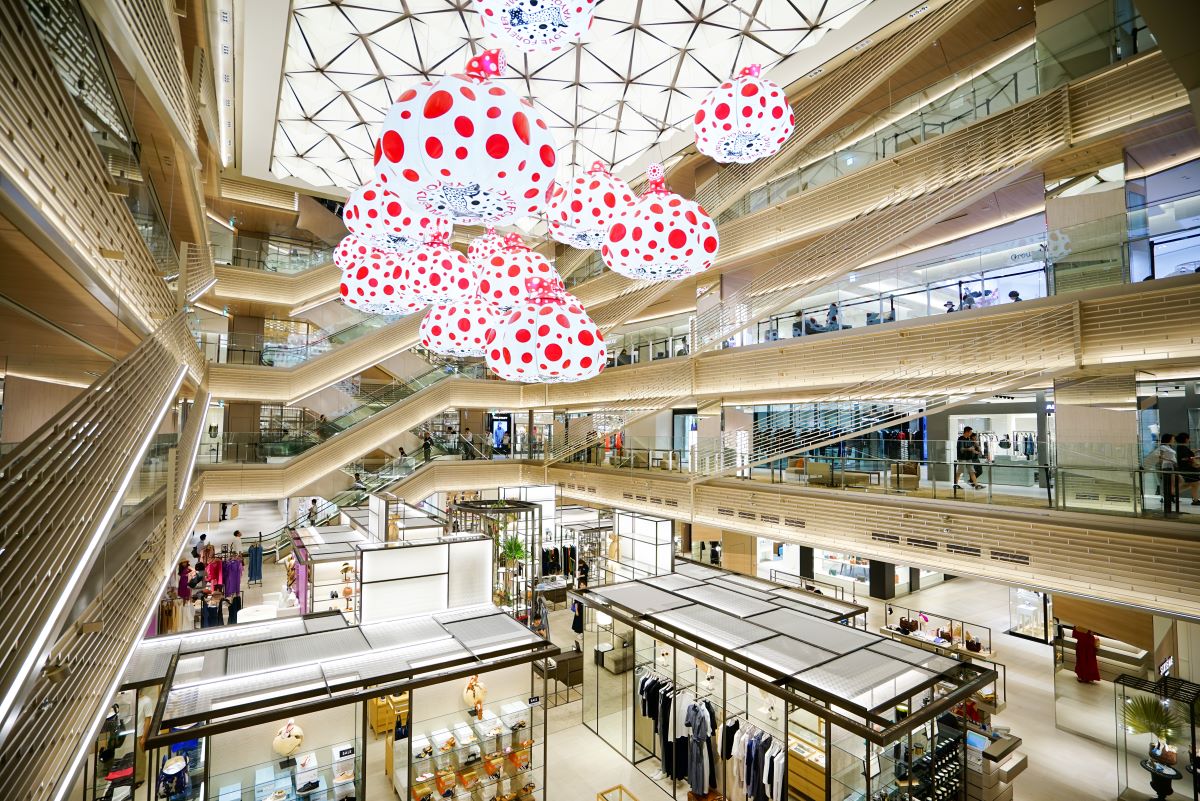Japan, renowned for its rich cultural heritage and technological advancements, has developed into a thriving luxury market fueled by a combination of factors such as a strong economy, discerning consumers, and a unique appreciation for craftsmanship and quality.
And despite being severely impacted by the Covid-19 pandemic in 2020, Japan’s luxury sector has recovered quickly in the last few years. In 2023, the country is experiencing an uptick in luxury expenditure again due to a rise in summer bonuses and an upsurge in its tourism sector activities.
So far this year, the luxury goods sector in Japan, which is the third largest in the world after the US and China, generated around $30.49 bn in revenue, as per Statista. Furthermore, with a market volume of $10.48 bn in 2023, the prestige cosmetics and perfumes sector emerged as the largest segment in the nation’s luxury market.
Previously, Japan’s luxury market grew by 18% in 2022 to $24bn, catching up to its pre-Covid-19 levels, according to Bain & Company. In addition, according to government statistics, high-income families spent an average of 440,000 yen ($3056.99) a month in 2022, an increase of about 4% from 2019. Looking ahead, Japan’s luxury market is expected to grow at a CAGR of 4.94% between 2023 and 2028.
“So considerable is the (Japan’s luxury) market’s scale and influence that almost a quarter of all LVMH’s* physical stores across Asia are located on the island nation. Having witnessed a dramatic downturn between 2007 and 2012, and again during the pandemic, the market has since returned to strong growth,” said the digital marketing agency Croud.
Offline shopping ruling the roost in Japan’s luxury market
With Japan’s luxury market expanding at a rapid rate, sales of goods through e-commerce platforms are gaining popularity as well. Online sales accounted for more than 20% of the country’s luxury market revenue in 2021. This year, the revenue share from e-commerce is expected to reach 25%, as per Statista.
Despite this trend, a McKinsey & Company survey finds that Japanese buyers of luxury goods still choose in-person shopping over their online counterparts. According to the findings of the survey, 36% of respondents solely buy offline, and almost 80% of respondents claimed that offline shopping is a crucial component of their overall purchasing process.
According to the same survey, 41% of luxury shoppers said that they research and buy across several channels, including both online and offline. While 30% of respondents stated that they use e-commerce sites to compare items, prices, and reviews.
“Despite a rise in e-commerce activity and a prolonged pandemic, a majority of consumers in the Japanese luxury market say they still prefer to shop in person. Increasingly, they see online channels as a complement to the offline experience,” said McKinsey & Company.
“While they may research, evaluate, and, in some cases, purchase luxury products online, the offline experience and sales associate (SA) relationship remain as important as ever,” it added.
How to invest in Japan’s luxury market
Investors looking to invest in Japan’s luxury market can consider the following companies:
Citizen Watch
Established in 1918, Citizen Watch is a Japanese electronics company best recognised for producing high-end watches composed of materials such as stainless steel, gold, and sapphire crystal. The company’s net sales rose by 7.1% year on year to 310.36 bn yen ($2.15 bn) in the fiscal year ended March 2023. Operating profit fell by 6.44% to 21.03 bn yen ($146.12 mn).
Listed on the Tokyo Stock Exchange (TYO: 7762), Citizen Watch has a market capitalization of $1.51 bn. The company’s stock has risen by 63.37% in the past year. It has a PE ratio of 10.66 and a price-to-book ratio of 0.99. Besides Tokyo, American Depository Receipts (ADR) are listed on NASDAQ (OTCMKTS: CHCLY) in the US and are accessible through over-the-counter transactions.
Tsutsumi Jewelry
This Japanese company operates a chain store specialising in the production, design, and sale of precious stones. Tsutsumi Jewelry registered a 10% year-on-year rise in net sales, amounting to 18.11 bn yen ($125.82 mn) in the fiscal year ended March 2023. During the same period, its net income expanded by 33% year on year to 0.91 bn yen ($6.31 mn).
The company has a market cap of $0.24 bn and is traded on the Tokyo Stock Exchange (TYO: 7937). The company’s shares have spiked by 16.3% since last year. It has a PE ratio of 51.77 and a price-to-book ratio of 0.55.
FANCL Corp
The premium Japanese health and beauty brand FANCL is well-known not only in Japan’s domestic luxury market but around the world for producing and selling cosmetics without preservatives and nutritional supplements.
The company’s net sales rose by 0.4% year on year to 103.59 bn yen ($0.72 bn) in the fiscal year ended March 2023. During the same period, the company’s operating income increased by 19.7% year on year to 7.84 bn yen ($55.33 mn).
FANCL’s stocks are listed on the Tokyo Stock Exchange (TYO: 4921). The company has a market cap of $2.12 bn. Since last year, the company’s shares have fallen by 0.65%. Along with that, the shares have a PE ratio of 61.60 and a price-to-book ratio of 3.92.
Editor’s note: All stock movement figures as of July 6, 2023.
* LVMH = Moët Hennessy Louis Vuitton


 Australia
Australia China
China India
India Indonesia
Indonesia Japan
Japan Malaysia
Malaysia Philippines
Philippines Singapore
Singapore South Korea
South Korea Taiwan
Taiwan Thailand
Thailand Vietnam
Vietnam







